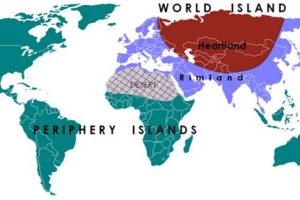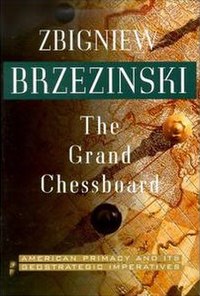Russian President Vladimir Putin, who has decided to invade Ukraine, is now permanently banished from the US-UK-led international community as a rare villain, outlaw, murderer, and destroyer of the international order. The "Putin Demonization" directed by the Western media was completed by a condemnation resolution at the UN General Assembly on March 2. After that, the western eye is shifting to when Putin will be deposed and expelled in the country without waiting for the Russian presidential election in 2024. This is in contrast to the Western media's "tolerance" to the US Bush administration, which invaded Iraq without a UN Security Council resolution, with the main excuse of possessing weapons of mass destruction, which was later lied to in 2003. Of course, the military invasion of Ukraine is not endorsed, but Putin tried to rebuild the Russian economy, which was on the verge of being swallowed by the huge US and British capital under the Yeltsin administration after the collapse of the Soviet Union. Putin, who was regarded as a "devil" because he became an enemy of Western capital, was finally cornered by the United States and Britain due to the Ukrainian problem. It can be understood only by looking at the concept of former US National Security Adviser Zbigniew Brzezinski, who led the movement toward the US conquest of Eurasia in the last 30 years.
 And he considers that "the history of mankind is the history of the struggle between land power and sea power, and it will be the era of land power from now on." Then, "What controls Eastern Europe, Russia and the Slavs controls the world," he insisted.As a result, the formation of Rimland, which tightens Heartland (Russia), was advocated.
And he considers that "the history of mankind is the history of the struggle between land power and sea power, and it will be the era of land power from now on." Then, "What controls Eastern Europe, Russia and the Slavs controls the world," he insisted.As a result, the formation of Rimland, which tightens Heartland (Russia), was advocated. The Brzezinski family are Polish immigrants. His father, Brzezinski, has had a great influence on US politics as an international political scholar even after serving as National Security Adviser to the Carter administration. His son Mark is a qualified lawyer and has served as Director of the National Security Council Russia under the Bill Clinton administration and Ambassador to Sweden under the Obama administration. It seems that the Biden administration has fully sent Mark to Poland now that he is at the time of his father's will, "The United States will be the first non-Eurasian state to control Eurasia." ..
The Brzezinski family are Polish immigrants. His father, Brzezinski, has had a great influence on US politics as an international political scholar even after serving as National Security Adviser to the Carter administration. His son Mark is a qualified lawyer and has served as Director of the National Security Council Russia under the Bill Clinton administration and Ambassador to Sweden under the Obama administration. It seems that the Biden administration has fully sent Mark to Poland now that he is at the time of his father's will, "The United States will be the first non-Eurasian state to control Eurasia." .. "A non-Eurasian state (US) controls the Eurasian continent for the first time." As mentioned above, this is a proposal made by the late Zbigniew Brzezinski in the mid-1990s after the end of the Cold War against the Soviet Union. The international political scholar served as National Security Adviser under the Carter administration and made a name for himself by directing the diplomacy of former President Obama. His proposal did appear in the declaration of a new "Manifest Destiny" that envelops the United States' strong will to supremacy alone. The weakened United States has mobilized the Anglo-Saxon allies of Britain and Australia, Japan, and India to develop a grand containment policy that envelops the two major Eurasian countries, China and Russia.
"A non-Eurasian state (US) controls the Eurasian continent for the first time." As mentioned above, this is a proposal made by the late Zbigniew Brzezinski in the mid-1990s after the end of the Cold War against the Soviet Union. The international political scholar served as National Security Adviser under the Carter administration and made a name for himself by directing the diplomacy of former President Obama. His proposal did appear in the declaration of a new "Manifest Destiny" that envelops the United States' strong will to supremacy alone. The weakened United States has mobilized the Anglo-Saxon allies of Britain and Australia, Japan, and India to develop a grand containment policy that envelops the two major Eurasian countries, China and Russia.
